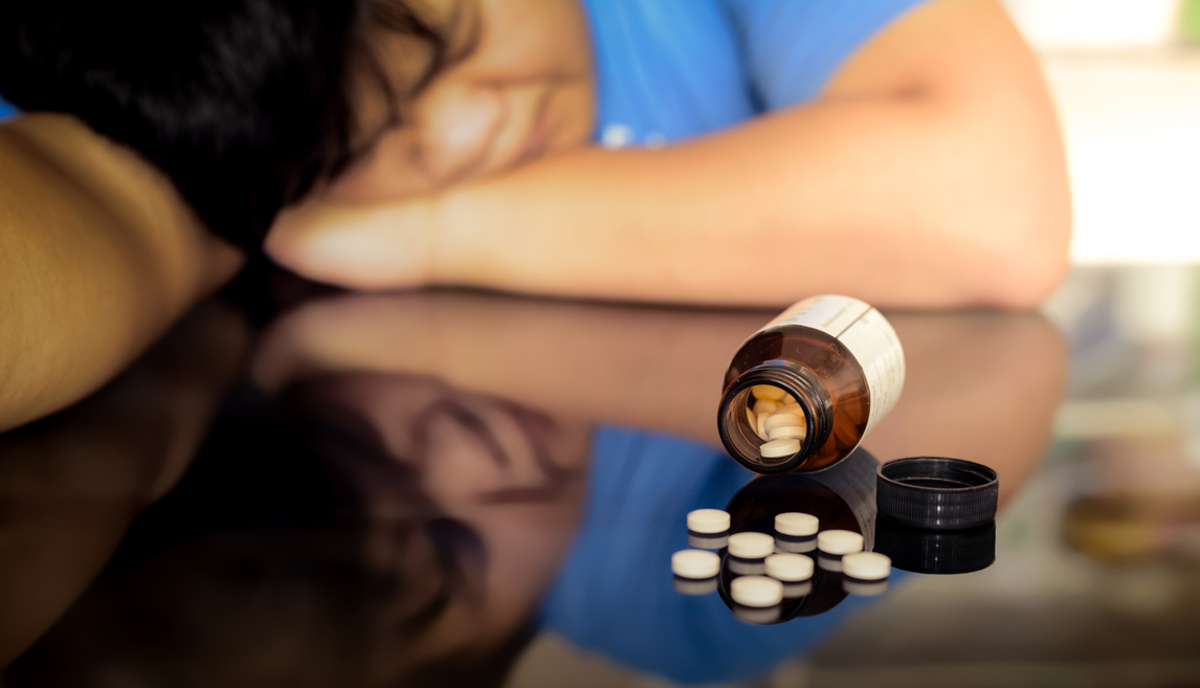Drug overdoses claimed 52,404 lives in 2015 in the United States alone. In some cases, discovering an overdose early and calling emergency services right away can make the difference between life and death.
What are the signs and symptoms of a drug overdose, and what do you do if you suspect someone has overdosed?

How can you recognize the symptoms of a drug overdose?
Someone who has overdosed on prescription or illegal opioids may:
- Lose consciousness or fall asleep
- Have extremely small pupils
- Have slow and shallow breathing, and may make choking sounds
- Be physically "floppy"
- Have cold skin that may turn pale or blue
Someone who has overdosed on benzodiazepines may:
- Have trouble breathing
- Be extremely dizzy and appear confused or otherwise cognitively abnormal
- Experience abnormal muscle movement
- Have blue lips and fingertips
- Have tremors
- Fall into a coma
A cocaine overdose, or an overdose involving other stimulants like amphetamine, can cause:
- Fevers and sweating
- Blue skin
- Nausea and vomiting
- Fast, labored breathing
- High blood pressure
- Seizures
- Loss of bladder control
- Confusion
Alcohol poisoning can lead to:
- Confusion
- Difficulty breathing or slow breathing
- Pale or blue skin
- Losing consciousness, or being conscious but unresponsive
- Vomiting
- Hypothermia
- Heart attack
Even something as simple and seemingly harmless as Tylenol can cause an overdose, in which case the person may experience abdominal pain, nausea and vomiting, seizures, and coma. Such overdoses can happen accidentally, especially in children, but some people also overdose on acetaminophen with the intention of committing suicide.
You may be trying to help someone you know experiments with drugs without being sure exactly what they've taken — or you may know what kinds of drugs they are on, but not know whether they're overdosing or merely intoxicated. You may also encounter someone you don't know on the street, notice they aren't OK, and wonder whether they could have overdosed on something. People overdosing will often have taken multiple different drugs, which increases the danger of death.
What do you do if you suspect that someone may be overdosing?
If you happen to be nearby, you will be able to provide it, by:
- Calling 911 (or whatever the number of your local emergency services is) immediately. Should you not have a phone, ask anybody nearby to call emergency services for you.
- Telling the 911 operator any details you are aware of — not just the symptoms the person is experiencing, but what drugs they have taken, and anything else you know that may be relevant.
- Staying with the person until help arrives.
- Trying to keep the person awake and talking.
The rest of the steps depend on the circumstances, and your 911 operator will give you step-by-step instructions on what you can do while you wait for professional help to arrive on the scene. However, if you're still trying to reach emergency services, you may put the person in the recovery position — on their side with one arm beneath their head and a knee bent forward to stop the person from rolling onto their front — to prevent them from choking on their vomit or swallowing their tongue. If they are seizing, move dangerous objects that could hurt them out of their way. If you know the person took opioids and have naxalone available, you could administer it.
If the person you suspect of taking an overdose stops breathing, you can attempt to perform CPR. While it is best to take a first-aid course to learn how to help, here are the steps:
- The person should be on their back
- Kneel over the person from their side, place one hand down, and interlock your other hand with the first.
- Push down firmly, five or six centimeters into the middle of the person's chest.
- Remove pressure to allow the chest to come back up, but keep your hands in place.
- Repeat this 100 to 120 times per minute until the person resumes breathing.
In this situation, it is ideal if a second person is present to keep talking to emergency services. If not, place your phone on speaker so that you can communicate with your 911 operator while having your hands free.
- Photo courtesy of SteadyHealth


Your thoughts on this